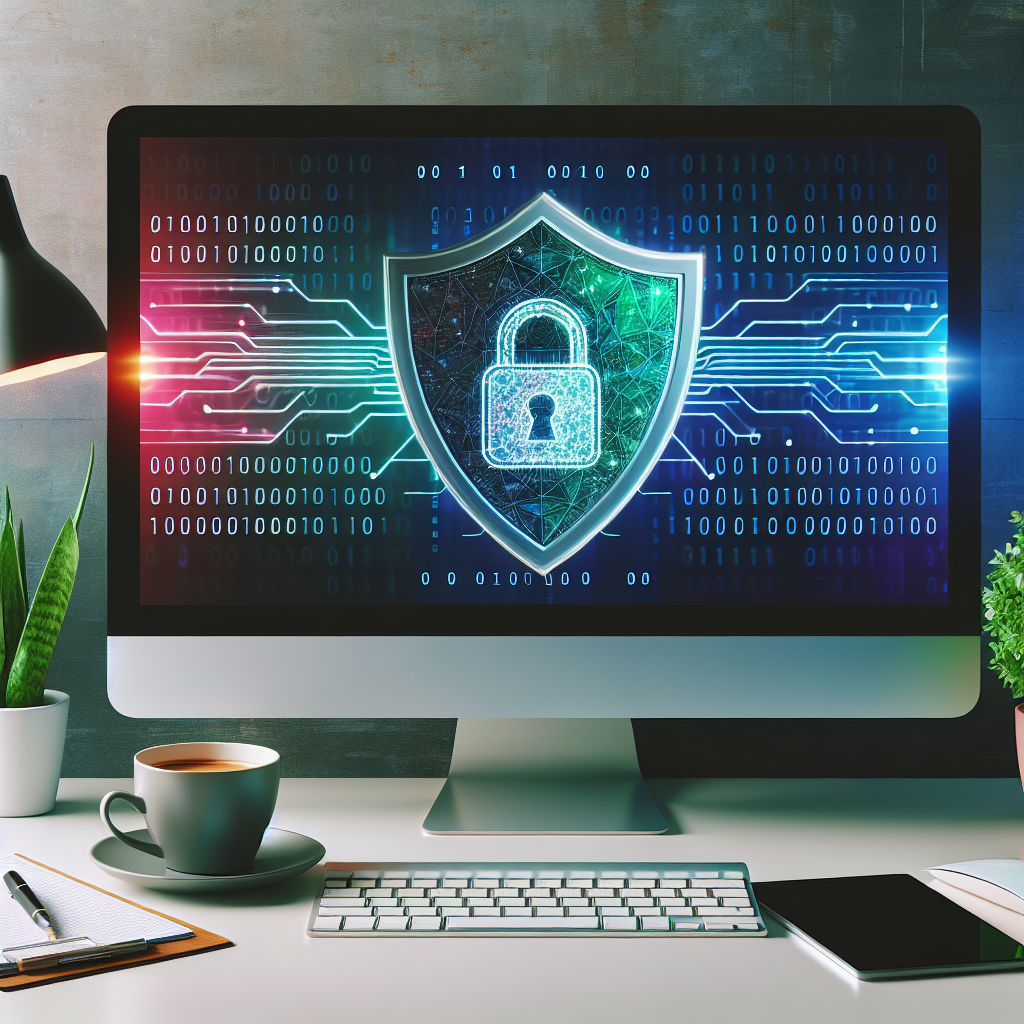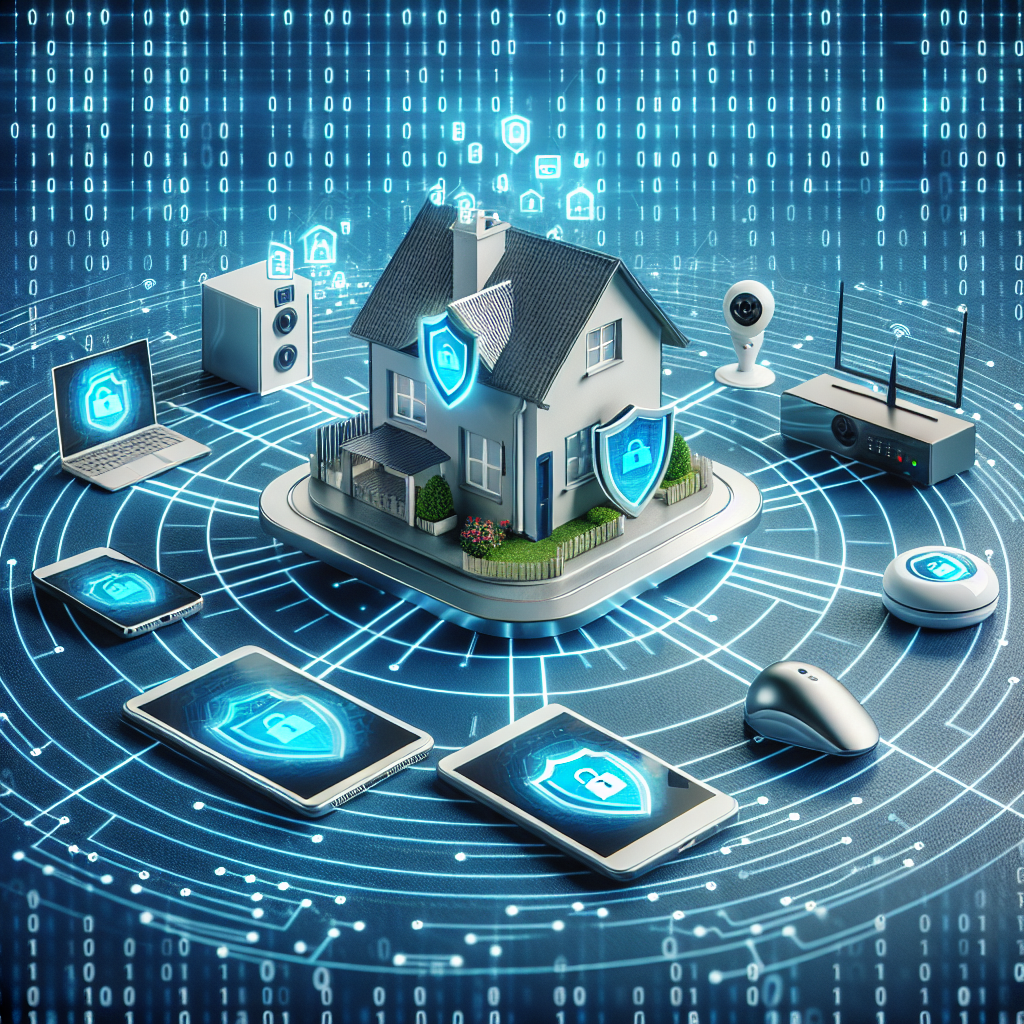In a world where online threats continue to evolve and expand, it is crucial for individuals to protect their digital assets with reliable cybersecurity software. This review aims to explore the best cybersecurity software options tailored specifically for home use, providing an in-depth analysis of features, performance, and user-friendliness. From antivirus programs to firewalls and VPN services, this review will help you make an informed decision on which software suits your needs and offers the highest level of protection for your personal devices. Stay ahead of cyber attacks and safeguard your online presence with the right cybersecurity software for your home.
Understanding Cybersecurity Software

Cybersecurity software refers to a set of tools and programs designed to protect devices, networks, and data from cyber threats and attacks. In the modern digital landscape, where individuals store sensitive information on their devices, cybersecurity software plays a crucial role in safeguarding personal data and privacy. As cyber threats continue to evolve and become more sophisticated, the importance of cybersecurity software for home use cannot be overstated.
Definition and Importance
-
Definition: Cybersecurity software encompasses a range of applications that aim to detect, prevent, and respond to cyber threats such as malware, ransomware, phishing attacks, and identity theft. These software solutions work proactively to identify vulnerabilities in systems and protect against potential breaches.
-
Importance: With the increasing connectivity of devices and the prevalence of online transactions, individuals are at higher risk of falling victim to cybercrimes. Cybersecurity software provides a layer of defense against these threats, helping users secure their digital footprint and maintain control over their personal information.
Common Features
-
Real-time Threat Detection: Cybersecurity software constantly monitors network traffic and system activities to identify and block potential threats in real-time.
-
Firewall Protection: Many cybersecurity programs include firewall capabilities to control incoming and outgoing network traffic, preventing unauthorized access to devices.
-
Antivirus and Antimalware: These features scan devices for malicious software and remove or quarantine any detected threats to prevent damage to files and data.
-
Secure Browsing: Some cybersecurity software offers tools to enhance online security, such as safe browsing extensions and secure DNS settings to protect users from phishing attempts and malicious websites.
Top Cybersecurity Software for Home Use
When it comes to protecting your home devices from cyber threats, investing in reliable cybersecurity software is crucial. There are several options available in the market, each offering unique features and benefits. In this review, we will explore three top cybersecurity software options for home use: McAfee Total Protection, Norton 360 Deluxe, and Bitdefender Total Security.
McAfee Total Protection
McAfee Total Protection is a comprehensive cybersecurity solution that offers a wide range of features to keep your devices safe from online threats. Some of the key features of McAfee Total Protection include:
- Real-time protection: McAfee Total Protection constantly monitors your devices for any suspicious activity and blocks potential threats in real-time.
- Firewall security: The software includes a robust firewall that helps prevent unauthorized access to your network and personal data.
- Safe browsing: McAfee Total Protection offers safe browsing features that protect you from phishing scams and malicious websites.
- Multi-device compatibility: This software can be installed on multiple devices, making it a convenient option for households with multiple gadgets.
Pros:
- User-friendly interface
- Comprehensive protection against various types of malware
- Regular updates to stay ahead of emerging threats
Cons:
- Can sometimes slow down device performance
- Additional features may require upgrading to a higher-priced package
Norton 360 Deluxe
Norton 360 Deluxe is another popular choice for home cybersecurity software, known for its robust security features and user-friendly interface. Some of the key features of Norton 360 Deluxe include:
- Virus protection: Norton 360 Deluxe offers advanced virus protection that detects and removes malware effectively.
- Secure VPN: The software includes a secure VPN that encrypts your internet connection, ensuring your online activities remain private.
- Password manager: Norton 360 Deluxe comes with a password manager that securely stores your login credentials for easy access.
-
Automatic backup: The software provides automatic backup options to protect your important files and documents.
-
Excellent malware detection rates
- Includes a wide range of additional security features
-
24/7 customer support for any queries or issues
-
Slightly higher pricing compared to other options
- Can be resource-intensive on older devices
Bitdefender Total Security
Bitdefender Total Security is a feature-rich cybersecurity software that offers comprehensive protection for your home devices. Some of the key features of Bitdefender Total Security include:
- Advanced threat defense: Bitdefender Total Security uses advanced algorithms to detect and block even the most sophisticated cyber threats.
- Privacy protection: The software includes features like webcam protection and anti-phishing tools to safeguard your privacy online.
- Parental controls: Bitdefender Total Security offers robust parental control features to help you monitor and manage your children’s online activities.
-
Optimized performance: The software is designed to run smoothly in the background without affecting your device’s performance.
-
High detection rates for malware and ransomware
- Low system impact, suitable for older devices
-
Regular updates to keep up with evolving cybersecurity threats
-
Can be overwhelming for users who prefer simpler interfaces
- Some advanced features may require manual configuration for optimal protection
In conclusion, when choosing cybersecurity software for home use, it is essential to consider your specific needs and preferences. Each of the options mentioned above offers unique features and benefits, so be sure to evaluate them carefully before making a decision. Remember, investing in reliable cybersecurity software is an important step in safeguarding your digital life from potential threats.

Factors to Consider When Choosing Cybersecurity Software
When selecting cybersecurity software for home use, there are several crucial factors that individuals should take into account to ensure they have adequate protection against cyber threats. Consider the following key factors:
-
Compatibility with Devices
- It is essential to choose cybersecurity software that is compatible with all the devices you use at home, including desktop computers, laptops, smartphones, and tablets.
- Ensure the software can be easily installed and configured on all your devices without any compatibility issues.
-
Compatibility with different operating systems such as Windows, macOS, Android, and iOS is also important to provide comprehensive protection across all platforms.
-
Level of Protection Needed
- Assess the level of protection required based on your online activities and the sensitivity of the data you handle.
- If you engage in online banking, shopping, or work with sensitive information, opt for cybersecurity software that offers advanced features such as real-time scanning, ransomware protection, and firewall capabilities.
-
Consider whether the software provides protection against emerging threats such as zero-day attacks and phishing attempts to ensure robust security for your home network.
-
User-Friendliness
- Choose cybersecurity software that is user-friendly and easy to navigate, especially if you are not tech-savvy.
- Look for software that offers a simple installation process, intuitive interface, and clear instructions for configuring settings and performing scans.
- User-friendly software ensures that you can effectively manage your cybersecurity measures without feeling overwhelmed or confused by complex features.

By carefully considering these factors when selecting cybersecurity software for home use, individuals can enhance their online security and protect their personal information from cyber threats effectively.
Additional Tips for Enhancing Home Cybersecurity
In addition to utilizing cybersecurity software, there are several proactive measures individuals can take to enhance their home cybersecurity.
-
Regular Software Updates
Regularly updating software is crucial as these updates often contain patches for security vulnerabilities that cybercriminals may exploit. Set up automatic updates for operating systems, antivirus programs, and other software to ensure you are protected against the latest threats.
-
Strong Password Management
Creating strong, unique passwords for each online account is essential for preventing unauthorized access. Use a combination of letters, numbers, and special characters, and consider using a reputable password manager to securely store and generate complex passwords.
-
Safe Internet Practices
Practicing safe internet habits can significantly reduce the risk of falling victim to cyber threats. Be cautious of suspicious emails, avoid clicking on links from unknown sources, and be mindful of the information you share online. Additionally, consider using a virtual private network (VPN) when browsing the web to encrypt your connection and protect your data from prying eyes.
Comparing Free vs. Paid Cybersecurity Software
Review of Cybersecurity Software for Home Use
When it comes to choosing cybersecurity software for home use, consumers often face the dilemma of whether to opt for free or paid options. Both categories offer distinct benefits and advantages, each catering to specific needs and preferences.
-
Benefits of Free Software
Free cybersecurity software, as the name suggests, does not require any monetary investment from the user. Some of the key benefits of opting for free software include:
-
Cost-Effective: One of the most significant advantages of free cybersecurity software is that it allows users to protect their devices without incurring any additional costs.
-
Basic Protection: While free software may not offer all the advanced features of paid versions, it typically provides essential protection against common threats such as viruses, malware, and phishing attacks.
-
User-Friendly: Free cybersecurity software is often designed with user convenience in mind, making it accessible and easy to use for individuals with varying levels of technical expertise.
-
-
Advantages of Paid Software
On the other hand, paid cybersecurity software comes with its own set of advantages that make it a compelling choice for many users. Some of the key advantages of opting for paid software include:
-
Advanced Features: Paid cybersecurity software often includes a wide range of advanced features such as real-time threat detection, firewall protection, secure browsing tools, and data encryption.
-
Comprehensive Protection: Unlike free software, paid solutions typically offer more comprehensive protection against a broader range of cyber threats, making them ideal for users who require robust security measures.
-
Customer Support: Paid software packages often come with dedicated customer support services, allowing users to seek assistance and guidance in case of any issues or concerns.
-
-
Considerations for Choosing Between Free and Paid Options
When deciding between free and paid cybersecurity software for home use, it is essential to consider various factors, including:
-
Budget: While free software is cost-effective, paid options may offer better value in terms of features and protection.
-
Security Needs: Assessing individual security needs and the level of protection required can help determine whether free software is sufficient or if investing in a paid solution is necessary.
-
User Experience: Considering factors such as ease of use, compatibility with devices, and additional features can help users choose the cybersecurity software that best suits their requirements.
-
FAQs Review of Cybersecurity Software for Home Use
What is cybersecurity software and why is it important for home use?
Cybersecurity software is a set of programs designed to protect devices, networks, and data from cyber threats such as viruses, malware, and hackers. It is important for home use because personal devices and data are at risk of being targeted by cybercriminals who can steal personal information, financial data, and disrupt normal operations.
What features should I look for when choosing cybersecurity software for home use?
When choosing cybersecurity software for home use, you should look for features such as real-time virus scanning, firewall protection, anti-phishing tools, automatic updates, and secure web browsing. It is also important to consider the compatibility of the software with your operating system and devices.
Are there any free cybersecurity software options available for home use?
Yes, there are several free cybersecurity software options available for home use. Some popular choices include Avast Free Antivirus, AVG Antivirus Free, and Malwarebytes Free. While these free options may not offer as many features as paid versions, they still provide essential protection against common cyber threats.
How often should I update my cybersecurity software for home use?
It is recommended to update your cybersecurity software for home use regularly, ideally setting it to automatically update. Cyber threats are constantly evolving, so updating your software ensures that it can effectively protect your devices and data from the latest threats. Additionally, regularly updating your software helps to patch any security vulnerabilities that may be present.
Can cybersecurity software for home use protect all of my devices?
Yes, most cybersecurity software for home use is designed to protect multiple devices, including computers, smartphones, tablets, and smart home devices. However, some software may have limitations on the number of devices that can be protected under a single license. It is important to check the licensing terms and compatibility of the software with all of your devices before making a purchase.